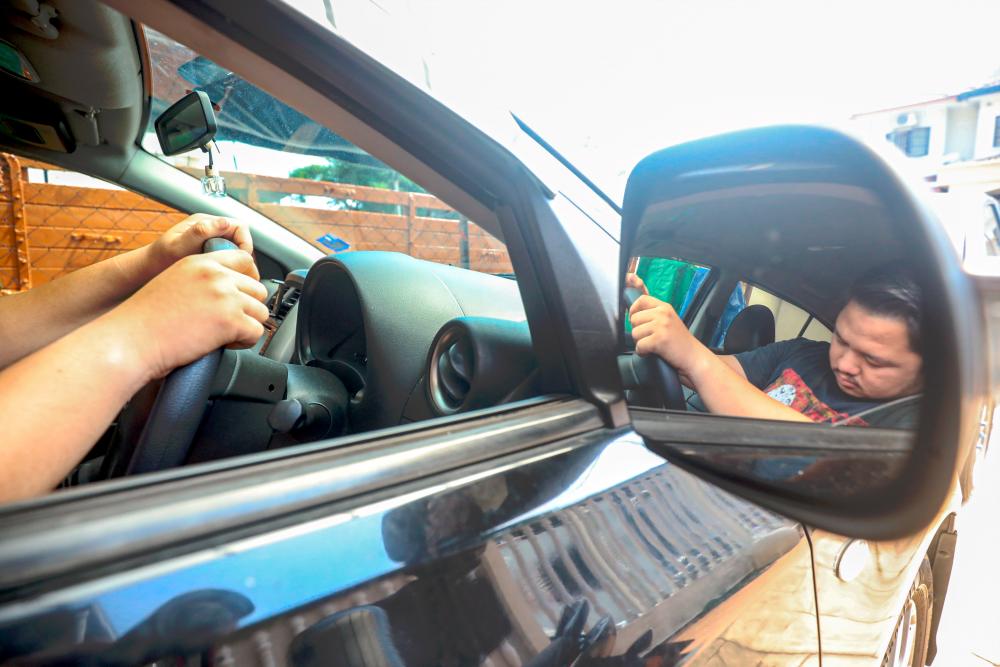KUALA LUMPUR: With fatigue a common complaint due to the heatwave currently being experienced in the country, motorists have been cautioned about nodding off while driving, putting themselves and other road users at risk.
The danger of microsleep is real, as police said between 2011 and 2021, there were a total of 1,305 fatalities attributed to drivers falling asleep at the wheel due to fatigue.
The Meteorological Department also reported that temperatures have soared to unprecedented levels in recent weeks, with daily highs of between 35°C and 37°C.
Malaysian Medical Association president Dr Muruga Raj Rajathurai said the current heatwave may cause a rise in microsleep, which is a very short period of sleep that can occur over seconds, rather than minutes or hours.
“Microsleep affects those not getting enough rest or having sleep disorders such as insomnia. Sleep apnea and narcolepsy may also be contributing factors, as is fatigue.
“These episodes typically last only for a few seconds and may occur due to a lack of sleep or feeling tired throughout the day. A person having an episode of microsleep may appear to be awake, but is not fully responsive,” he said.
Muruga Raj added that individuals who are going through microsleep episodes may exhibit signs such as forgetting certain details discussed in conversations, experiencing sudden moments of distraction and nodding their head.
They may also forget their work at hand and experience confusion while attempting to complete complex tasks.
Malaysian Institute of Road Safety Research chairman Prof Dr Wong Shaw Voon said microsleep episodes are dangerous for drivers because the few seconds one falls asleep behind the wheel could cause a fatal crash.
“Microsleep drivers are prone to crashes due to skipping sleep to get ahead of schedule. To make matters worse, these motorists may have to drive down straight and ‘boring’ roads, which further tires the eyes.
“Working irregular hours and shifts, or staying up late can disrupt a person’s sleep patterns and cause drowsiness. Over time, this will result in an accumulation of sleep debt, or insufficient hours of proper rest.”
He said to overcome this, there are technologies within the Advanced Driver-Assistance System, such as Autonomous Emergency Braking (AEB) and Lane Departure Warning (LDW) in new vehicles, including commercial ones.
“AEB is a safety feature in modern vehicles that uses sensors, cameras and radars to detect potential collisions and automatically apply the brakes to prevent or mitigate an accident.
“The benefits of AEB are numerous and significant, especially in avoiding collisions. The LDW system uses a camera to track road markings and sound an alarm when drivers stray out of their lanes without signalling.”
Wong said new vehicles come with such technology to alert drivers before a possible collision occurs, while motorists driving older vehicles can add minor features such as cameras and sensors to their vehicles.
However, he said it was not advisable to modify vehicles with such features as it would be harmful if they malfunction, adding that some users disable the safety features of their vehicles, which is also not recommended, as it could be helpful for drivers as traffic conditions cannot be predicted.
Muruga Raj said: “It is also important to refrain from self-medicating as it is crucial to take any underlying health conditions into account before taking prescription drugs.”
He added that individuals who encounter extreme exhaustion or somnolence, which is a state of drowsiness or a strong desire to fall asleep, should promptly consult a doctor.
“It is important to maintain good health and practise proper sleep cycles by sleeping for seven to nine hours each night.
“Microsleep can be solved by following healthy sleep patterns, eating habits, getting adequate daylight exposure, exercising regularly and managing stress levels.
“It is important to maintain a healthy circadian rhythm, which is an internal process that regulates the sleep-wake cycle and occurs every 24 hours,” he said.









